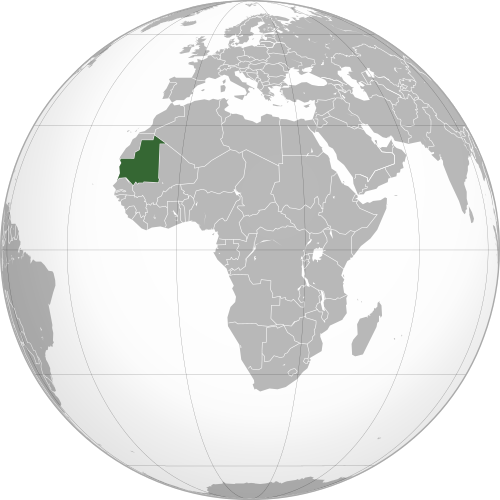They even have one that speaks English!
You know, I grew up in Ohio. It was okay. But every day, I would think to myself: man, this place sure would be a lot better if it was flooded with people from Mauritania!
Finally, it seems the federal government is moving to fix this problem.
Hundreds of migrants from the West African country Mauritania have been settling in Cincinnati to escape state violence.
U.S. Customs and Border Protection data says more than 8,500 Mauritanians arrived in the U.S. from March to June – up from around 1,000 during the four months prior.
According to the Associated Press, Mauritania was one of the last countries to criminalize slavery. Despite this, the practice persists in parts of the country. Several Mauritanians who spoke with the AP said the state police had targeted them because of their anti-slavery activism.
Many Mauritanians are finding their way to Cincinnati from a route posted on TikTok and WhatsApp that flows from Mauritania to Turkey, then Central or South America to the U.S.

As you can see from this map, the closest safe country to Mauritania is Ohio
It’s a complicated journey, which includes an immigration loophole in Nicaragua that allows relaxed entry requirements and a low-cost VISA without proof of onward travel. They’re then smuggled illegally from Nicaragua to the U.S. southern border. They seek asylum in the U.S. before settling in Lockland.
John Keuffer, CEO of Interfaith Community Resource Center, said 100 migrants came to their location last Friday.
“We just had 1,000 Africans show up in the community,” Keuffer said. “We don’t know where they’re from. We don’t know how to communicate with them. It created quite an issue for us.”
Keuffer said the migrants have been coming to Valley Interfaith for about a year. He said they’re starting to find their footing with the situation. They can’t speak English and a few speak French.
Khalidou Syc arrived in the U.S. seven months ago and he’s become a key person in the community for helping newer migrants and keep them from suffering food insecurity.
“He volunteered to start helping us do data entry,” Keuffer said. “We rely on data and demographics for those who support our mission. So he started to be able to figure out who this person is and get them in the system so we can have good data and we can help them and we can track them.”
Syc said he and a few others are bridging the gap between Mauritanians and English-speaking workers while they seek immigration status and try to find food and other essentials.
“You can’t build any foundation without having a basic resource which is your ability to feed yourself and your family,” Syc said.
Migrants have been shopping with volunteers while they seek work permits. They hope this is temporary and they can get work permits and work to be self-sufficient.
Well, that’s another article with way too much information.
What information do you really need here that isn’t in the headline?
Why are we not using AI to summarize these articles?
Wouldn’t that work better for people who just want the highlights, which is most Stormer readers?
This is what you get in return, goy

